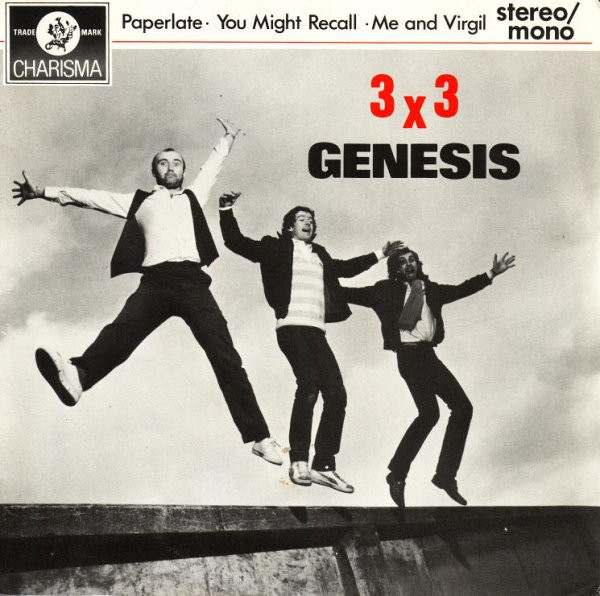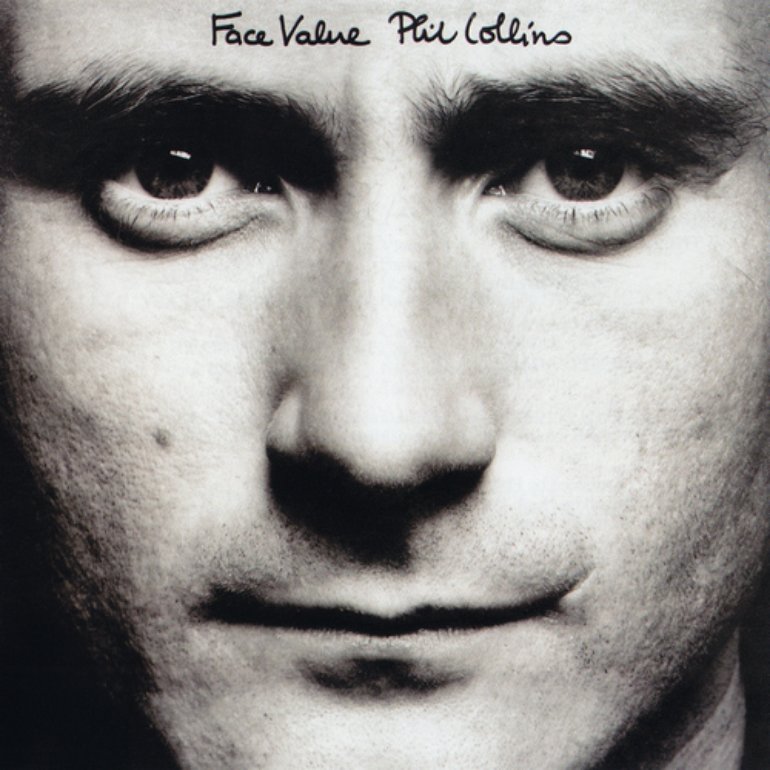In May 1982, Genesis released 3×3, an extended play featuring three songs left over from the Abacab sessions – tracks that did not make it onto the album but were too good to shelve.
Three Unreleased Songs from the Abacab Sessions
Abacab (1981) marked a turning point for Genesis. With a new producer, Hugh Padgham, and their newly purchased studio – The Farm in Surrey – the band had the freedom to jam, experiment, and refine their sound. When the album was finalized, they found themselves with a few strong tracks that had not made the cut. Rather than letting them go to waste, they chose to release them on an EP the following year.
The songs – Paperlate, You Might Recall, and Me and Virgil – were all co-written by Tony Banks, Phil Collins, and Mike Rutherford. The 3×3 EP came out in May 1982, between two major tours. In the U.S., it was never released as an EP; only Paperlate appeared as a single, with You Might Recall on the B-side.
The Songs
Paperlate shares a similar vibe with No Reply at All from Abacab – funky, upbeat, and driven by the Earth, Wind & Fire horn section, who had also worked with Collins on his solo debut Face Value. The title “Paperlate” comes from a lyric in Dancing with the Moonlit Knight (from Selling England by the Pound, 1973). During a soundcheck in either 1978 or 1980, Phil kept repeating the line “Paperlate cried a voice in the crowd…”, which eventually sparked the idea for a new song.
You Might Recall is a more romantic tune, stylistically close to some of Mike Rutherford’s earlier ballads like Alone Tonight.
The final track, Me and Virgil, is a storytelling piece reminiscent of Deep in the Motherlode (1978). This time, it was Collins who penned a Wild West narrative, with the band attempting to capture the spirit of The Band. However, Collins later expressed dissatisfaction with the track, and it was notably left off the Genesis Archive 2 box set in 2000.
Beatles-Inspired Artwork
The EP’s cover art was a playful homage to the Beatles’ 1960s EPs, particularly Twist and Shout. Genesis even brought in Tony Barrow, the Beatles’ former press officer, to write the sleeve notes in a cheeky, retro style (“These cheeky chappies from Guildford…”).


Not everyone got the joke. One reviewer, unaware of the Beatles reference, assumed the design was serious. But fans appreciated the nod, and the band’s sense of humor shone through once again. The EP was a hit in the UK, and Paperlate earned the band another appearance on Top of the Pops, with the EP reaching No. 10 on the charts.
Three Sides Live and the U.S. Version of 3×3
Later that year, Genesis released the live album Three Sides Live. Since EPs did not sell particularly well in the U.S., the band opted to include the 3×3 tracks on the album’s fourth side instead of releasing them separately. To round out that side, they added two outtakes from the Duke sessions: Open Door (by Rutherford) and Evidence of Autumn (by Banks). The UK version, in contrast, featured a full fourth side of live material.
3×3 was never released as a standalone CD. However, Paperlate and You Might Recall were included in the Genesis Archive 2: 1976–1992 box set in 2000, which featured many previously unavailable tracks. All three EP songs, including a remixed Me and Virgil, were later made available on CD in the Genesis 1976–1982 box set.

